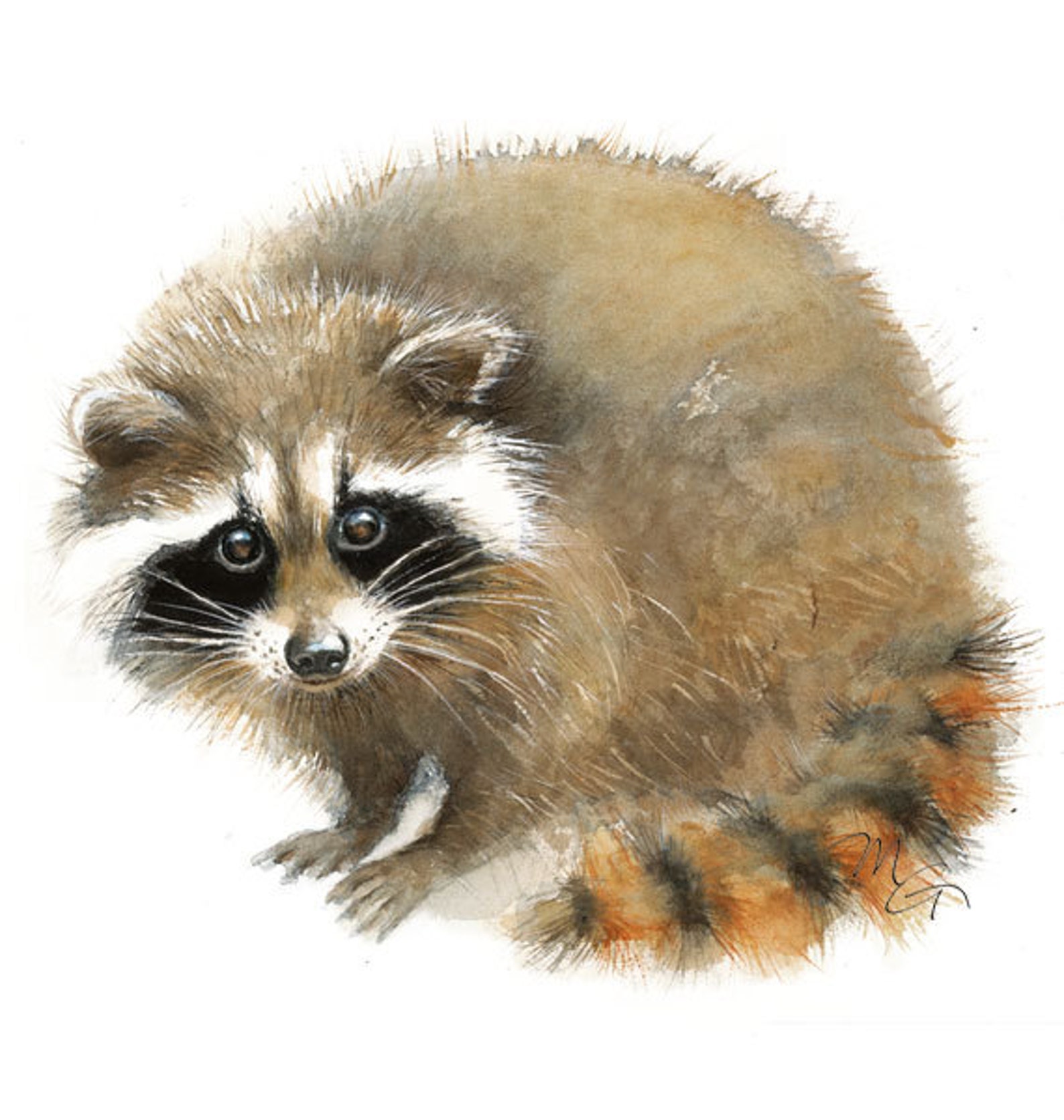
Introduction
Raccoon watercolor art has gained significant popularity in recent years. Artists around the world have been captivated by the charm and allure of these adorable creatures, and their unique characteristics lend themselves perfectly to the medium of watercolor. This article explores the beauty and artistry behind raccoon watercolor art.
A Brief History of Watercolor Art
Watercolor painting has a rich history that dates back centuries. The origins of this medium can be traced back to ancient civilizations such as Egypt and China. However, it wasn't until the Renaissance period that watercolor gained recognition as a legitimate art form. Over time, watercolor techniques and materials have evolved, giving rise to the diverse range of styles and approaches we see today.
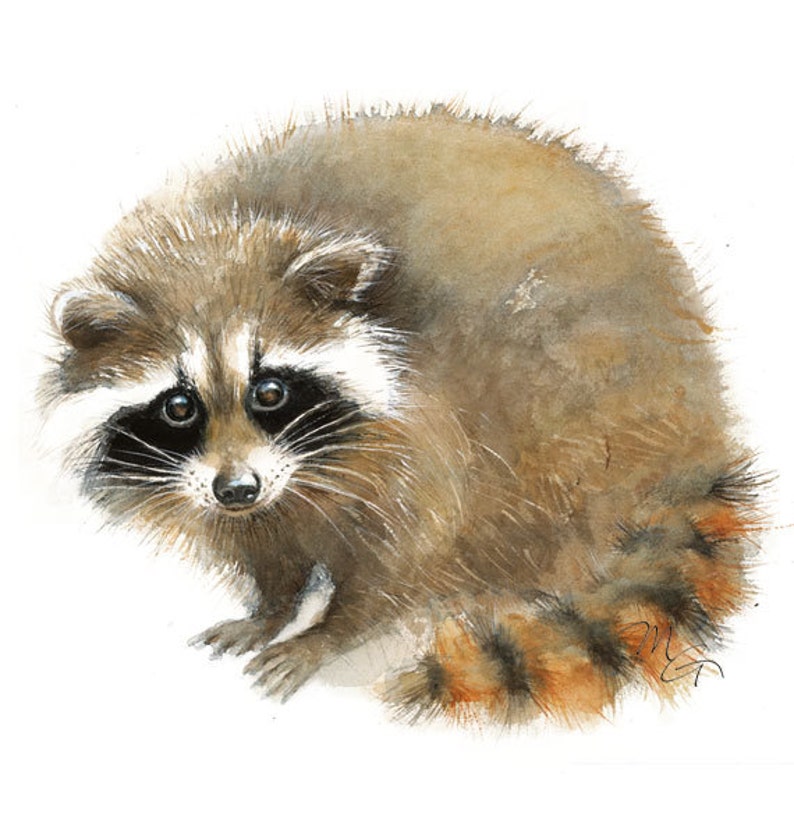
The Appeal of Raccoons in Watercolor
Raccoons are fascinating creatures known for their mischievous nature and distinctive markings. Artists are drawn to their expressive eyes, playful demeanor, and the challenge of capturing their intricate fur patterns. Watercolor, with its fluidity and transparency, allows artists to depict the raccoon's fur in a way that brings it to life on the paper.

Techniques for Creating Raccoon Watercolor Art
Creating raccoon watercolor art involves a combination of techniques that bring out the unique characteristics of these animals. Artists often start with a light sketch to outline the raccoon's shape and features. They then build up layers of transparent washes to achieve depth and texture in the fur. By carefully controlling the water-to-pigment ratio, artists can create soft gradients and subtle variations in color.

Inspiration from Wildlife Photographs
Many artists find inspiration for their raccoon watercolor art in wildlife photographs. These images capture the raccoon's natural habitats and behaviors, providing valuable references for accurate depictions. By studying the photographs, artists can observe the raccoon's posture, movement, and expressions, which they can then translate into their watercolor paintings.
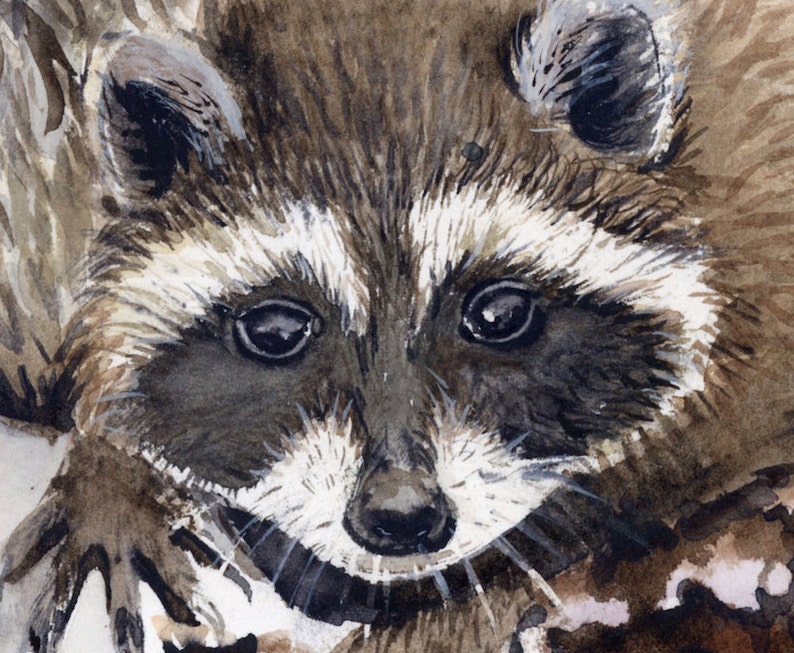
Exploring Different Styles
Raccoon watercolor art can be created in various styles, allowing artists to express their individuality and creativity. Some artists opt for a realistic approach, aiming to capture every detail of the raccoon's fur and features. Others may choose a more impressionistic or abstract style, using loose brushstrokes and vibrant colors to convey the raccoon's essence rather than its precise likeness.
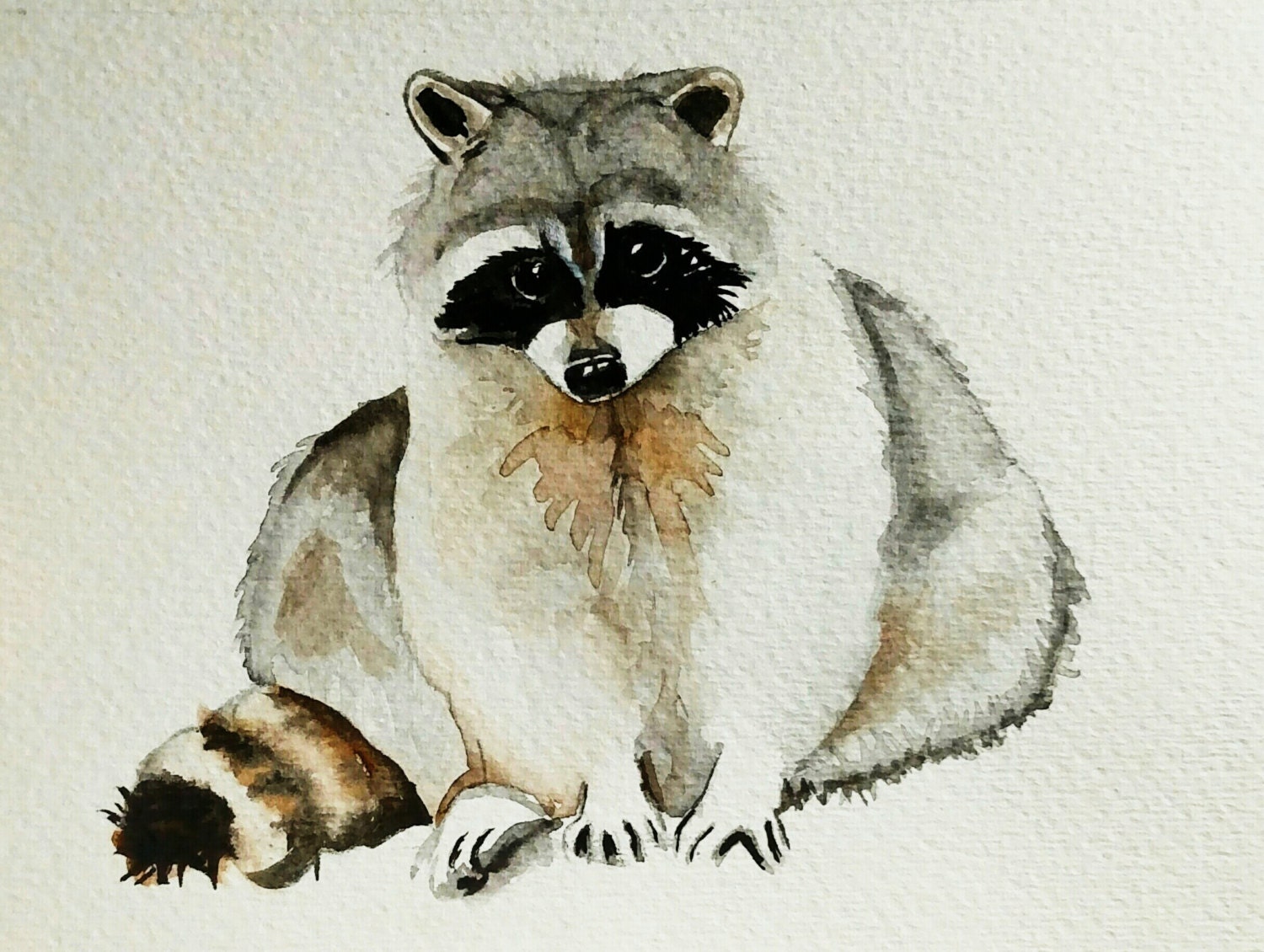
Materials and Supplies
To create raccoon watercolor art, artists require specific materials and supplies. These include high-quality watercolor paper, brushes of various sizes, watercolor paints, a palette, and water containers. It is essential to invest in professional-grade supplies to achieve the desired results and ensure the longevity of the artwork.
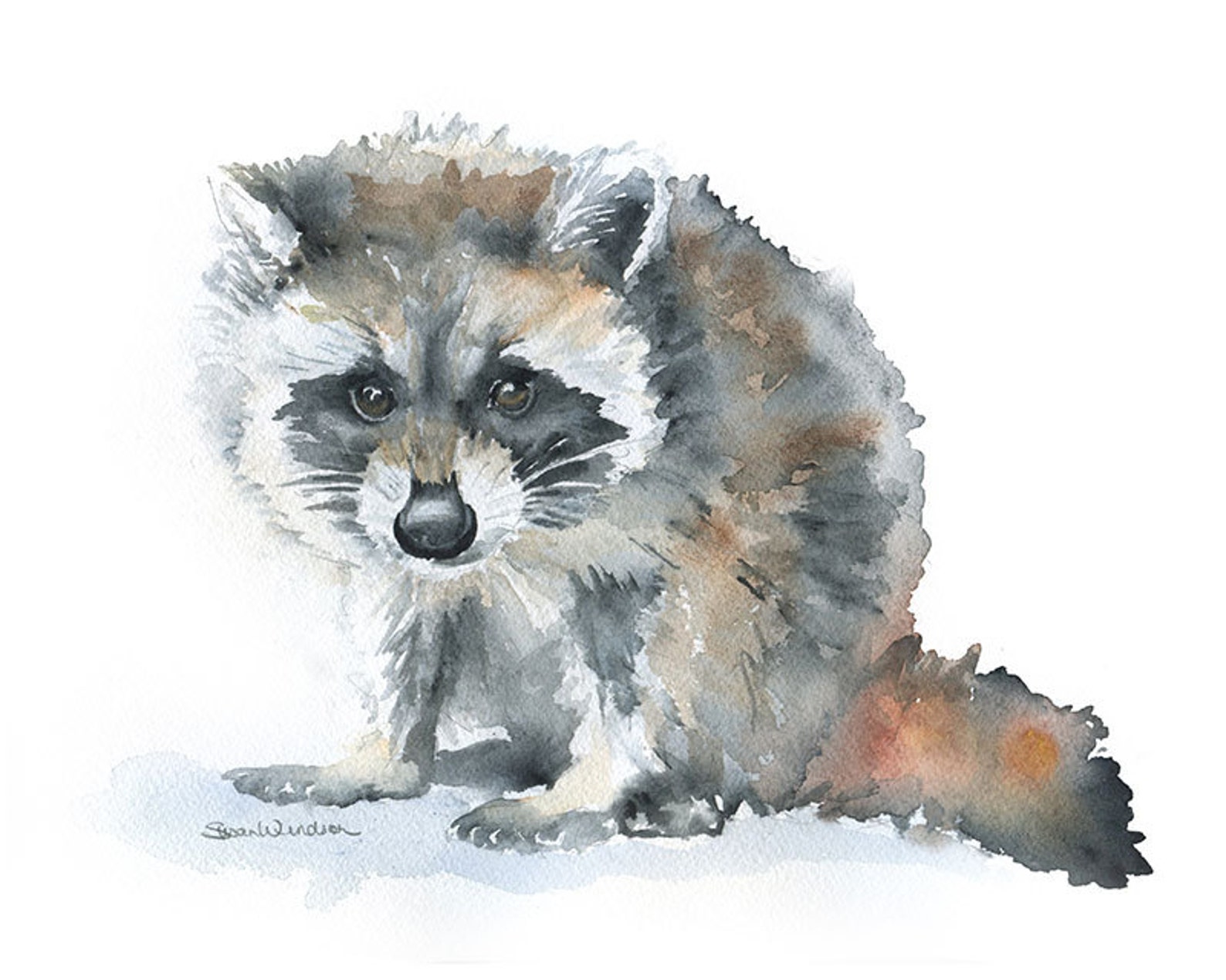
Tips for Beginners
If you're new to watercolor painting and want to try your hand at raccoon watercolor art, here are a few tips to get you started:
- Start with simple compositions and gradually work your way towards more complex subjects.
- Experiment with different brush techniques and paper textures to understand their effects on the final outcome.
- Study the raccoon's anatomy and observe their behavior to create more accurate and lifelike paintings.
- Practice regularly and don't be afraid to make mistakes ??? they are part of the learning process.
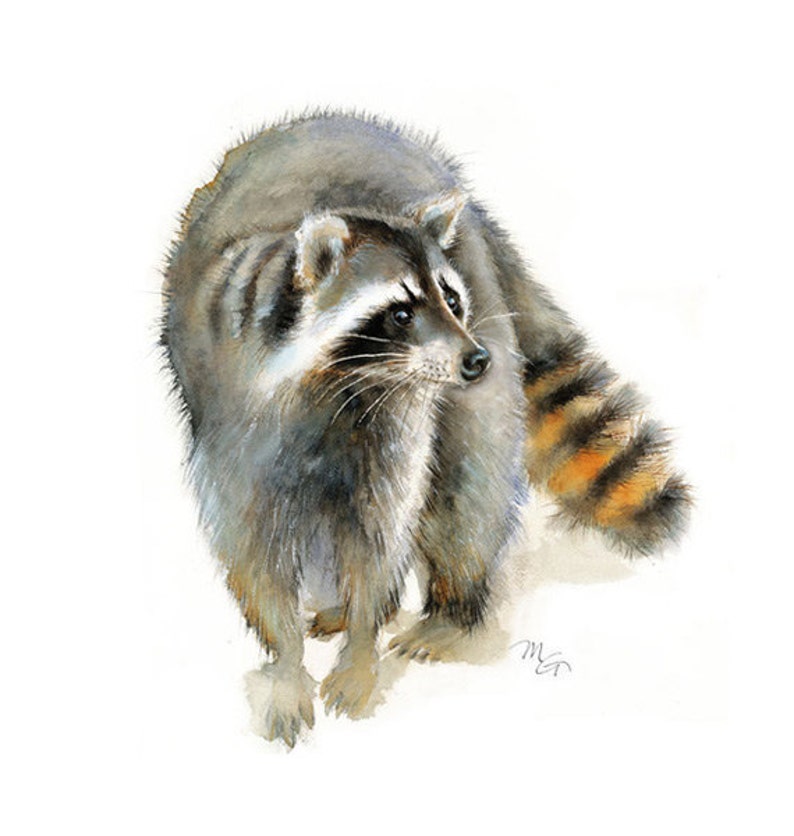
Creating Depth and Dimension
One of the essential aspects of raccoon watercolor art is creating depth and dimension in the painting. Artists achieve this by carefully layering transparent washes, starting with lighter colors and gradually adding darker tones. Shadows and highlights are crucial in conveying the three-dimensional form of the raccoon and making it appear more realistic.

Using Wet-on-Wet Technique
The wet-on-wet technique is commonly employed in raccoon watercolor art to achieve soft and blended effects. This technique involves applying wet paint onto a wet surface, allowing the colors to mix and mingle spontaneously. It is particularly useful for capturing the raccoon's fur, which often has subtle variations in color and texture.
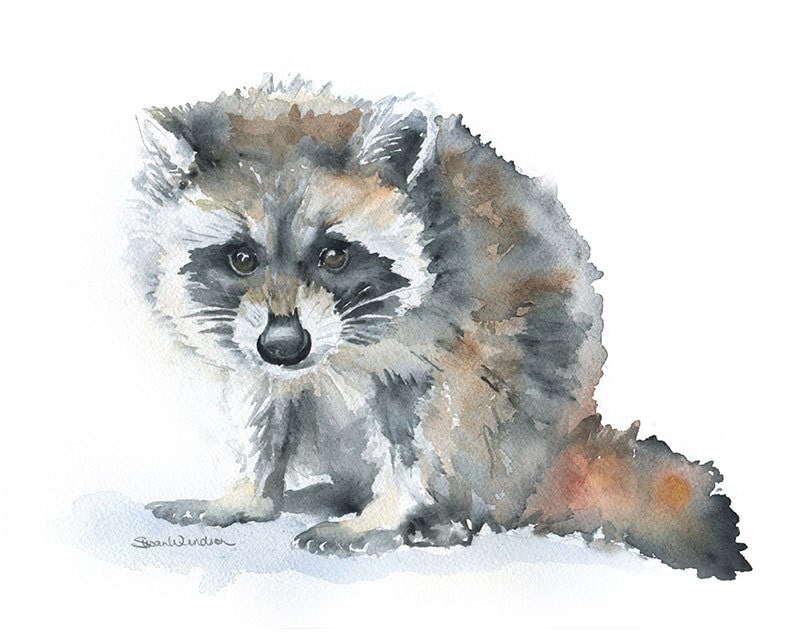
Adding Details with Dry Brushing
Dry brushing is another technique frequently used in raccoon watercolor art to add fine details. By using a brush with minimal moisture and gently dragging it across the paper, artists can create texture and small fur-like strokes that enhance the realism of the painting. This technique is especially effective when depicting the raccoon's facial features and intricate patterns.

Exploring Color Palettes
The choice of color palette significantly influences the mood and impact of raccoon watercolor art. Artists often opt for earthy tones, such as browns, grays, and blacks, to capture the natural hues of the raccoon's fur. However, some artists experiment with vibrant and unexpected color combinations to add a unique twist to their paintings.
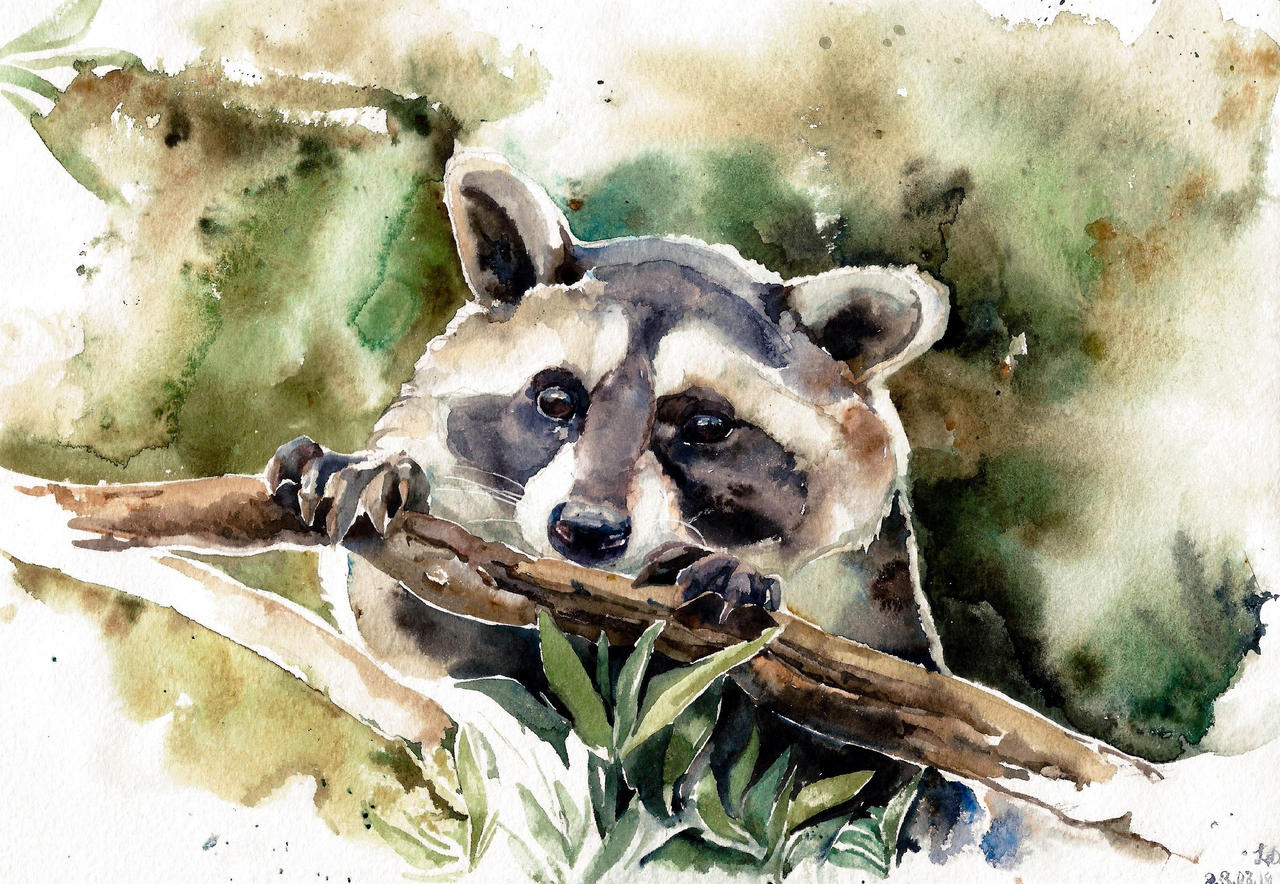
Preserving and Displaying Raccoon Watercolor Art
Once your raccoon watercolor art is complete, it is important to take proper care to preserve its integrity. Ensure the painting is completely dry before handling or framing it. To protect the artwork from moisture and sunlight, consider using archival materials for framing and display. This will help maintain the vibrancy and longevity of your raccoon watercolor art.

Conclusion
Raccoon watercolor art is a captivating and delightful form of artistic expression. Through the versatile medium of watercolor, artists can bring these charming creatures to life on paper, capturing their unique characteristics and playful personalities. Whether you're an admirer of wildlife art or an aspiring artist, exploring raccoon watercolor art can be a rewarding and enjoyable creative journey.